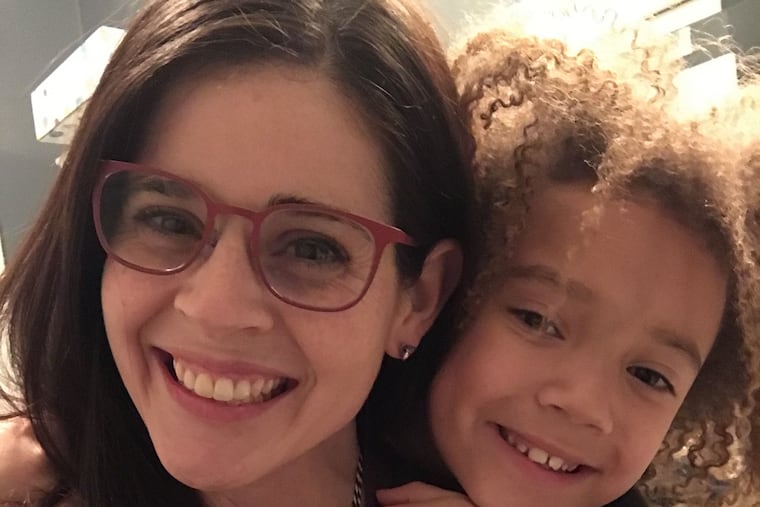Cancer took her fertility. Eventually, adoption became the ‘blessing on the other side of the hurt.’
When presented with the news I couldn’t conceive naturally because of cancer, I put my hope in adoption. I was at peace and comfortable with my infertility. But one day, many years later, everything changed.

I’ll never forget the moment years ago when my mom’s eyes pooled with tears as she desperately tried to hold them back. Beeping machines pumping IV fluids into my arm offered a dramatic soundtrack to her life-changing news: As a result of the surgery I’d just undergone, I couldn’t conceive children naturally anymore.
The lingering fog from my anesthesia and the dimly lit hospital room set a sobering mood. I offered an honest, heartfelt reply as I looked back at her over the side of my hospital bed:
“Oh, OK.”
I didn’t know any other way to respond. At 17 years old, it was just another dose of bad news. And, truth be told, having kids was the furthest thing from my mind.
I’d been diagnosed with colon cancer a few months prior and thrust into a sudden, shocking, unexpected fight for my life. The cancer treatment led me to a full lineup of surgeries, including the procedure that made me infertile. In the midst of the chaos, I just wanted to get over fighting cancer and back to my teenage life.
Plus, as a young elementary school-aged girl, I’d told my mom, “I’m going to drive a Jeep and adopt a toddler when I get older.” Adoption was always on my heart and something I wanted to do.
When presented with the news I couldn’t conceive naturally, I put my hope in adoption. I was at peace and comfortable with my infertility.
All that changed for me one day, many years later. At last, the tears in my mom’s eyes began to make sense as I started to grieve what I had lost.
I was holding my 18-month-old adopted daughter at the time.
For many years, the waves of grief tried to break through, but I’d never allowed them to fully sweep over me. They began to come when close friends and family started announcing their pregnancies. I’d get swept up into the moment and full of joy for them, but then when I was alone, a deep ache would sink into my chest and nearly take me down. I’d bat away such rapid thoughts as: “This will never be me,” and “Why can’t my husband and I have this same amazing experience?”
I reminded myself with thoughts that echoed many comments I’d received, “At least you can adopt,” and later, “At least you have your daughter!” They were comments that held off the grief and forced the sorrow to go away, giving it no permission to stick around.
But one day, I found myself needing a hysterectomy in order to prevent a third cancer. In another hospital bed, amid more beeping IVs, the reality hit me much harder. My fertility was officially, totally gone – no more secret hopes of a “miracle baby” or chance of becoming a biological mom. Despite the toddler sitting on my lap bringing laughter into my hospital room, the pain and grief sunk me into a low place where I wrestled for many months.
At first, waves of anger and sadness crashed into me, the loss of my fertility and all that I’d survived got caught up in their messy wake. But then, shame came and haunted me for being a barren woman. I felt asif something were fundamentally wrong with me because my body couldn’t produce human life. I was embarrassed to call myself female and felt isolated and different from everyone else. I was frustrated that I had no choice – mad that fertility was taken from me.
Unsure of where to go or how to find help, I crawled up into a proverbial pit and wanted to isolate myself from everything and everyone. I was sure nobody else in my life could know or understand the pain.
One day, I was reminded of other barren women’s stories and the shame and hurt they also carried. Many ancient prayers were those of women crying out to God to help them conceive. I realized that even in today’s culture, where families are blended and adoption is highly valued, it still hurts deep down when we can’t bring forth human life, but we want to. Even though infertility isn’t as stigmatized as it once was in ancient cultures, it’s still painful because it’s a reminder of brokenness – this isn’t how it’s supposed to be.
Pits of despair are often stinky and dark, but they also contain emergency exits. I found mine as I read stories of women that related to me and I got honest with my own feelings. I went back to the moment when I was told I couldn’t conceive naturally and changed my reaction from, “Oh, OK,” to “Wow – that really hurts. Ouch.”
I found peace with my situation, and I accepted that adoption is its own blessing, not just an answer to infertility.
Adoption is one of the most wonderful experiences of my life. I’m grateful to be called “Mom” by a beautiful daughter whom I adore. But, adoption was not the “fix” to my deep need to mourn my fertility.
Adoption wasn’t the answer to my pain. It is the blessing on the other side of the hurt I finally stopped pushing away.
Danielle Ripley-Burgess is a two-time colorectal cancer survivor who writes about cancer survivorship, faith, and family at DanielleRipleyBurgess.com. Find her on social media at @DanielleisB. This guest column appears through our partnership with Inspire, an Arlington, Va., company with condition-specific online support communities for more than a million patients and caregivers.